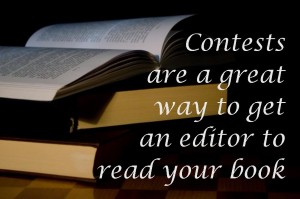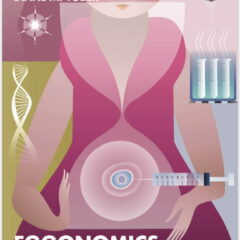Awards and prizes can be a fantastic complement to an author’s credibility, marketing strategy, and overall “brand.” The urge to apply for as many as possible is quite tempting. Yet when your book is newly published and you are considering the many choices, it is wise to step back and make an informed decision. Rather than send out of a flood of submissions, make a careful selection of appropriate awards and put your energy into those select few. Here is some advice on applying for book awards and prizes.
- Avoid prize mills. If the prize is $500 and the entry fee is $50, then this may not be a wise choice. Every good writing organization and publication offers lists of prizes and awards that have been vetted. Look at Poets & Writers and Goodreads.
- If you are a member of the SCBWI or Military Writers Society of America, there are prizes and awards specifically for you. Same for romance and thriller.
- Grants, fellowships, and residencies can also be worth applying for.
- Look into your state associations. There are arts councils, regional awards, and state library awards.
- Be as specific as possible. The big name, general awards are alluring, but your chances are much higher when you submit to the more specific categories. Consider those within your genre or age group. Also, consider prizes for first time published authors, women authors, or by region.
- Read the rules. No matter what is requested, follow the rules to the letter. When there are thousands of submissions, these types of mistakes are an easy way to winnow down the pile. Don’t miss out on being taken seriously for a prize because you didn’t send in enough copies.
- Do not assume your publisher will apply for awards on your behalf. Research the ones you want to be considered for. Ask your publisher directly if they will apply for you. If not, it is on you to get these applications in on time.
- Keep track of the deadlines for both submissions and decisions.
- Carefully examine the best-selling books in your genre; what awards did they win? Those are going to be the most respected and legitimate, yet the most competitive. Don’t rule out the smaller or newer prizes. You may be competing with fewer authors and therefore have a greater chance of winning.
- Set a budget for applications. Determine in advance your price range/limit for submissions. Some applications will require a heavy fee in either money or book copies. Make your decisions accordingly.
 For previously unpublished writers try for contests with low fees. Also smaller prizes may offer better chances at winning. Additionally, contests are a great way to get a professional editor to read and comment on your work. This in itself might be worth the cost of the entry.
For previously unpublished writers try for contests with low fees. Also smaller prizes may offer better chances at winning. Additionally, contests are a great way to get a professional editor to read and comment on your work. This in itself might be worth the cost of the entry.
For published writers, if the contest requirement includes multiple copies of your book, ask your publisher if they are willing to provide them. If they say no, then you will have to use your own copies. It’s worth asking.
Applying for awards is part of putting yourself out there as a writer. It goes beyond just winning or losing. It pushes you to get your stories and manuscripts ready for outside readers. It may also push you to write outside your genre and in this way exercise some new literary muscles. For novel writers, some contests accept novel excerpts. Winning an award like this can be used as leverage into a contract for the full novel. This can be especially helpful for an unpublished writer.
For local or regional awards, there is often a reception where you come together with others in the industry. This can be a great way to meet other writers, make connections, and establish your presence in the local writing community. These connections will be valuable at all stages of your writing career.
Resources:
Poets & Writers Literary Award Submission Calendar
Association for Library Service to Children Awards
Society for Children’s Book Writers and Illustrators Awards and Grants
Military Writer’s Society of America
Association of Writers & Writing Programs
Young Adult Library Services Association Book Awards and Lists
Eggonomics: Voices of Human Egg Donors

Routledge releases medical anthropologist Diane Tober’s groundbreaking study of human egg donors this week, cracking open the conversations about IVF, women’s reproductive health, rights to bodily autonomy, and parenting before an important presidential election. Eggonomics: The Global Market in Human Eggs and the Donors Who Supply Them is both timely and jaw-dropping in its findings and implications. In February 2024, the University of Alabama at Birmingham (UAB) where Diane Tober is a tenured professor, paused in vitro fertilization (IVF) treatments after an Alabama Supreme Court ruling which was later overturned. This is the first study to examine the experiences ofRead more…


This is a helpful post; thank you!